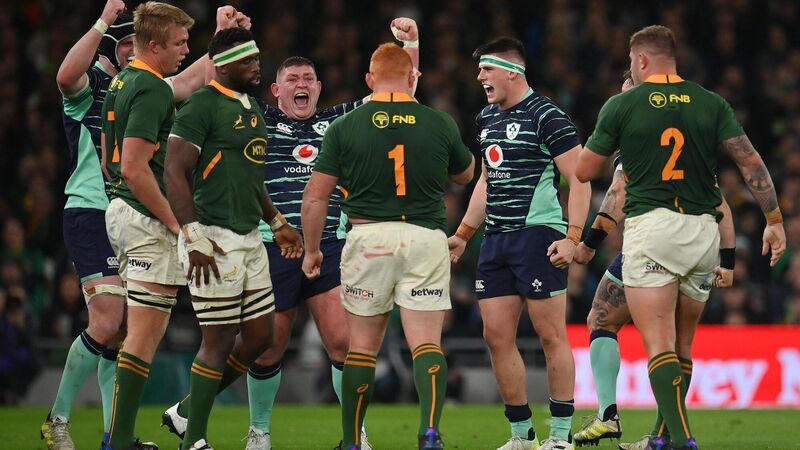Donal Lenihan: Farrell and O'Connell can sleep easier after a direct strike at the Boks' soul

ROARING HOME: Ireland players, from left, James Ryan, Tadhg Furlong and Dan Sheehan celebrate their side winning a penalty during the Bank of Ireland Nations Series match between Ireland and South Africa at the Aviva Stadium in Dublin. Pic: Seb Daly/Sportsfile
They’re called test matches for a reason. While not every international lives up to that monicker, this one certainly did.
It may not have been aesthetically pleasing to the casual observer - games against this South African side rarely are - but in terms of raw power, ferocious collisions and punishing defence it proved absolutely captivating from start to finish.












